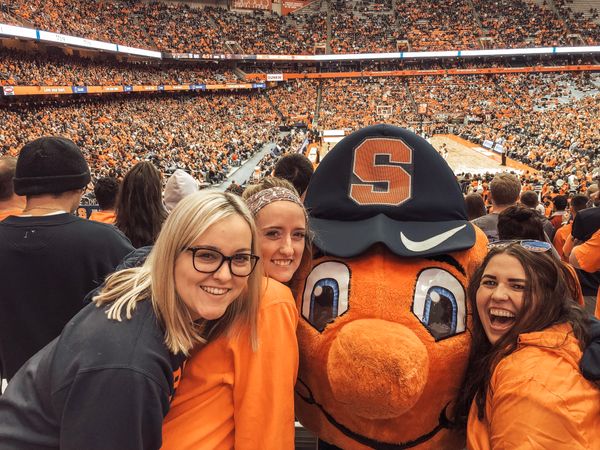Since I was a sophomore in high school, the dual-threat quarterback enamored me with his dazzling and unpredictable play at Texas A&M. The hype began to surround Manziel when he was a redshirt freshman during the 2012 season when he broke Archie Manning's 43 year-old total offense record against Arkansas in which he produced 557 total yards of offense. And then two games later, Manziel surpassed his own total offense record against #24 ranked Louisiana Tech by achieving 576 yards of total offense, becoming the first player in SEC history to have two 500+ total offense games in one season.
Then, against Missouri he broke the single season record for offensive production in the SEC with 4,600 yards, surpassing Cam Newton and Tim Tebow (both notable recent Heisman Trophy winners). He also became the first freshman and only the fifth player in NCAA history to pass for 3,000 yards and rush for 1,000 yards in a single season, reaching that mark two games earlier than any other player.
Following his incredible 2012 season, Manziel won the SEC Freshman of the Year Award and College Football Performance National Freshman of the Year Award. Additionally, he won the Davey O'Brien Award and the Heisman Trophy, making him the first freshman ever to win either award.
Nevertheless, as good as he was at escaping from SEC defenses, Manziel couldn't evade the law. The majority of Manziel's college career (2012-2013) was shrouded in controversy and run-ins with the law. During his career at Texas A&M, the quarterback's troubles were relatively minor, and seemed to be blown out of proportion by the hungry media.
As a biased fan with wishful-thinking, I was always hoping that Manziel would clean up his act. And I thought this time had come on Feb. 4, last year, when he checked himself into an alcohol addiction rehabilitation center. Considering most of his incidents were alcohol related, I thought he was doing the right thing by admitting he had a problem and addressing it the best way possible by seeking help. By the beginning of the 2015 NFL season, I soon realized that I was deeply mistaken.
In October, Manziel was pulled over by a policeman after fighting in his car with his girlfriend. Although no charges were filed, Manziel admitted to having had some alcoholic beverages earlier that afternoon. Then, the unthinkable happened: on Feb. 5, the Dallas Police Department announced that they were opening a criminal investigation with a claim of domestic violence involving his ex-girlfriend, Colleen Crowley.
Dallas police had originally closed the case, but re-opened it with allegations stemming from an altercation on Jan. 30, at a downtown Dallas hotel. According to Crowley, Manziel forced her into a car, pulled her by the hair, hit her so hard he ruptured her eardrum, and threatened to kill both her and himself. Now, with the Dallas Police Department referring the case to a grand jury, Manziel's fate is in the hands of the people of Texas.
This single incident truly opened my eyes to the monster Johnny Manziel has become. Therefore, as a loyal fan for four years, constantly finding myself defending Manziel in the hope he'd turn his behavior around, I have to relinquish my support of the quarterback.
Throughout my time as a Manziel fan, I always claimed I was a fan of him as a player, but not so much as a person. I would make excuses for him, arguing that he was a young college kid doing what any young college kid would do, especially after being one of the best players in all of college football.
Four years later, I have found myself in the same predicament, and Manziel's behavior has only worsened. Most importantly, domestic violence nothing to take lightly. It is an issue that has become an epidemic within the NFL and is something that must be taken incredibly seriously. And in my eyes there are no excuses for Manziel's most recent behavior.
It is time that Manziel takes responsibility for his actions and seek whatever help he needs in order to live a healthy and positive life. This is about more than football. This is about being a productive member of society, especially as a professional athlete and role model to millions of younger athletes across the country.





















